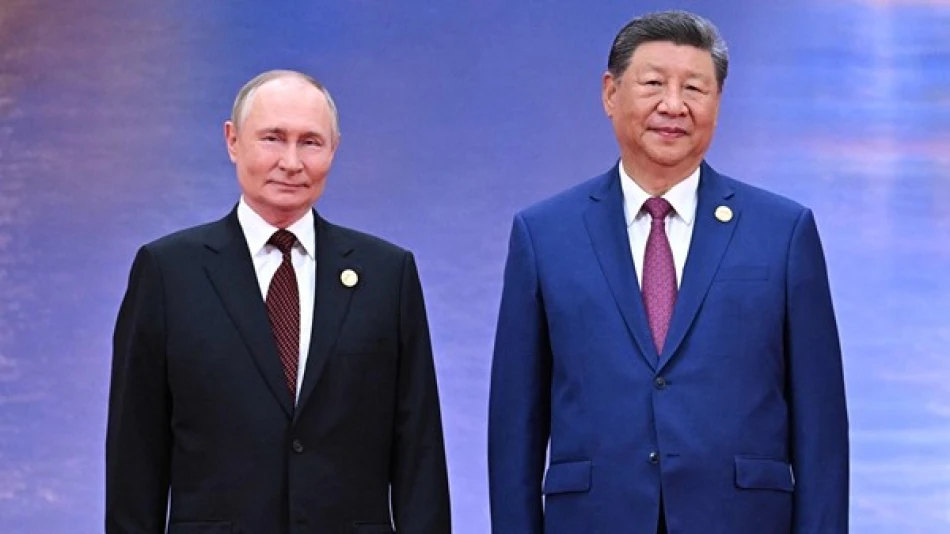
Putin and Xi Discuss Latest Russia-US Diplomatic Exchanges
Putin Briefs Xi on Trump Talks as Russia-China Alliance Deepens Amid US Tensions
Russian President Vladimir Putin discussed recent communications with Washington during a Sunday meeting with Chinese leader Xi Jinping, signaling how the deepening Moscow-Beijing partnership now extends to coordinating responses to American diplomatic overtures. The consultation underscores China's growing role as Russia's primary strategic ally in navigating complex great power relations.
Strategic Coordination Between Moscow and Beijing
Yuri Ushakov, Putin's foreign policy aide, confirmed to Russian media that the two leaders discussed recent Moscow-Washington contacts during their meeting on the sidelines of the Shanghai Cooperation Organization summit in China's northern coastal city of Tianjin. While Ushakov provided no specifics about the conversation's content, the mere fact that Putin briefed Xi demonstrates the unprecedented level of strategic coordination between the two powers.
This consultation follows Putin's earlier talks with US President Donald Trump in Alaska, marking a rare direct engagement between the Russian and American leaders. The decision to immediately share details of these discussions with Beijing reflects how Russia now views China as an essential partner in managing its relationship with the West.
The Russia-China Partnership in Context
The Putin-Xi meeting represents more than routine diplomatic courtesy. Since Russia's invasion of Ukraine in 2022, Moscow has become increasingly dependent on Beijing for economic support, technological cooperation, and diplomatic backing. This relationship has evolved from a partnership of convenience into what both sides describe as a comprehensive strategic alliance with "no limits."
Unlike previous eras when Moscow jealously guarded its diplomatic independence, Russia now regularly consults with China on major international decisions. This shift marks a fundamental realignment in global power dynamics, creating a consolidated authoritarian bloc that challenges Western influence across multiple domains.
Implications for Global Diplomacy
For international observers, Putin's briefing of Xi signals that any future US-Russia diplomatic engagement will likely involve Chinese input, complicating traditional bilateral approaches to conflict resolution. This triangular dynamic means Washington can no longer pursue isolated deals with Moscow without considering Beijing's interests and potential responses.
The timing is particularly significant as both Russia and China face mounting pressure from Western sanctions and technological restrictions. By coordinating their responses to American outreach, they create a more formidable negotiating position while reducing the West's ability to exploit divisions between them.
What This Means for Future US Policy
The Moscow-Beijing consultation pattern suggests that American policymakers must now account for a more integrated authoritarian response to diplomatic initiatives. Any successful engagement strategy will need to address both Russian and Chinese concerns simultaneously, rather than attempting to peel Moscow away from Beijing through bilateral incentives.
This development also highlights how geopolitical isolation has paradoxically strengthened the Russia-China bond. Rather than weakening Putin's position, Western pressure has pushed him deeper into Xi's embrace, creating the very alliance that US strategy sought to prevent.
Most Viewed News

 Layla Al Mansoori
Layla Al Mansoori






